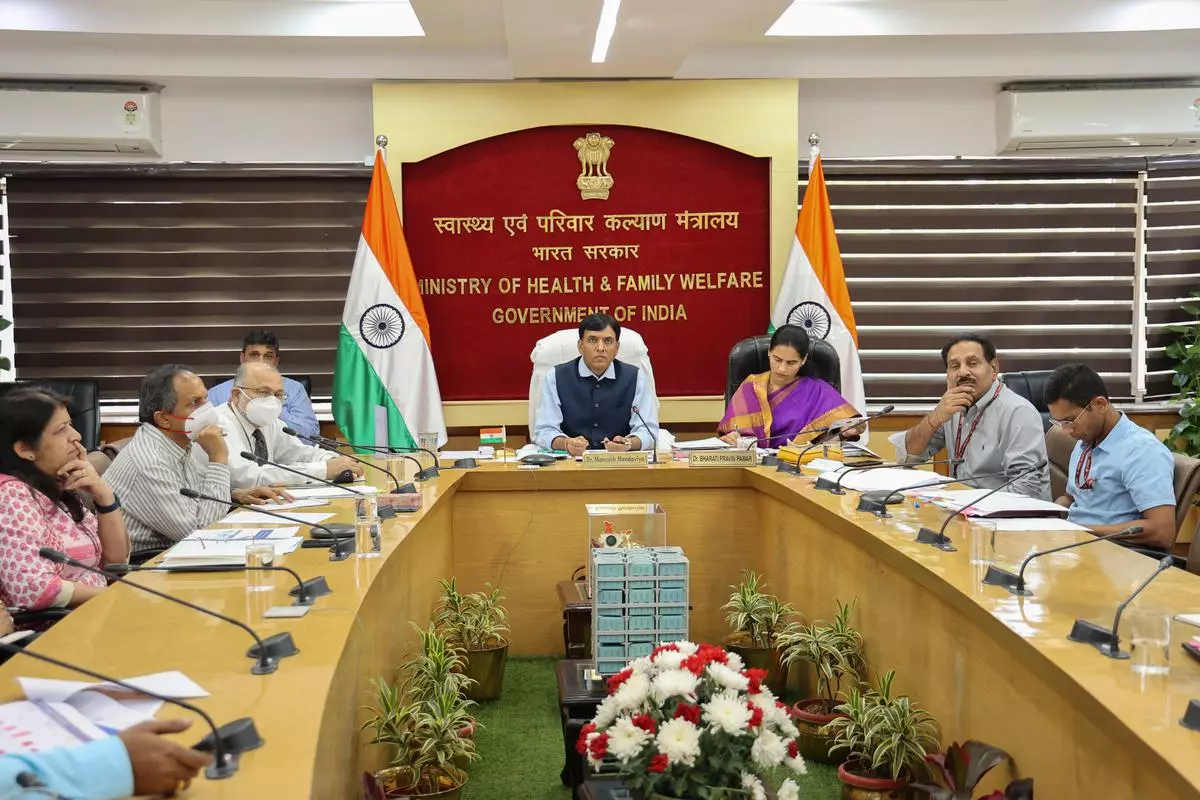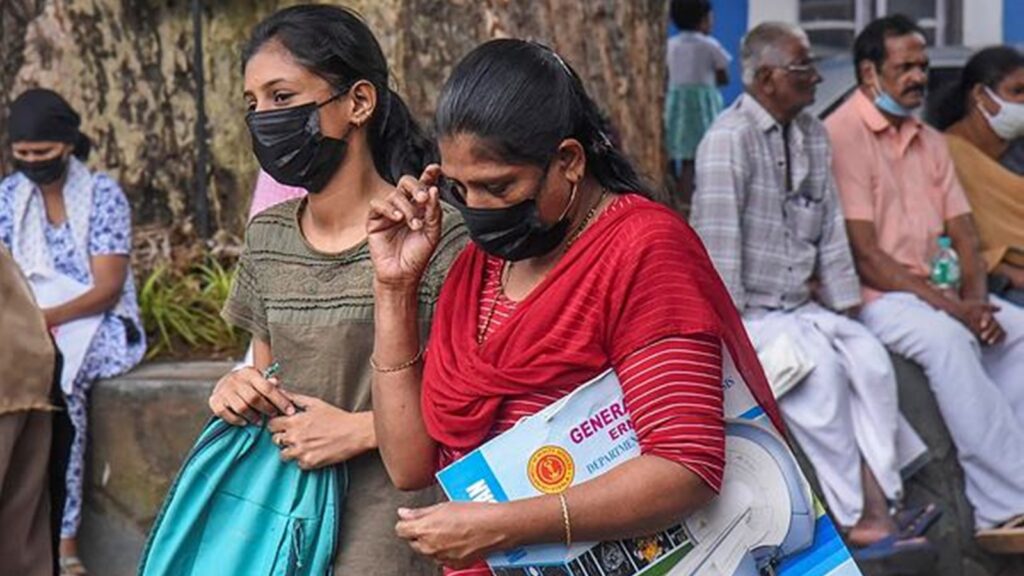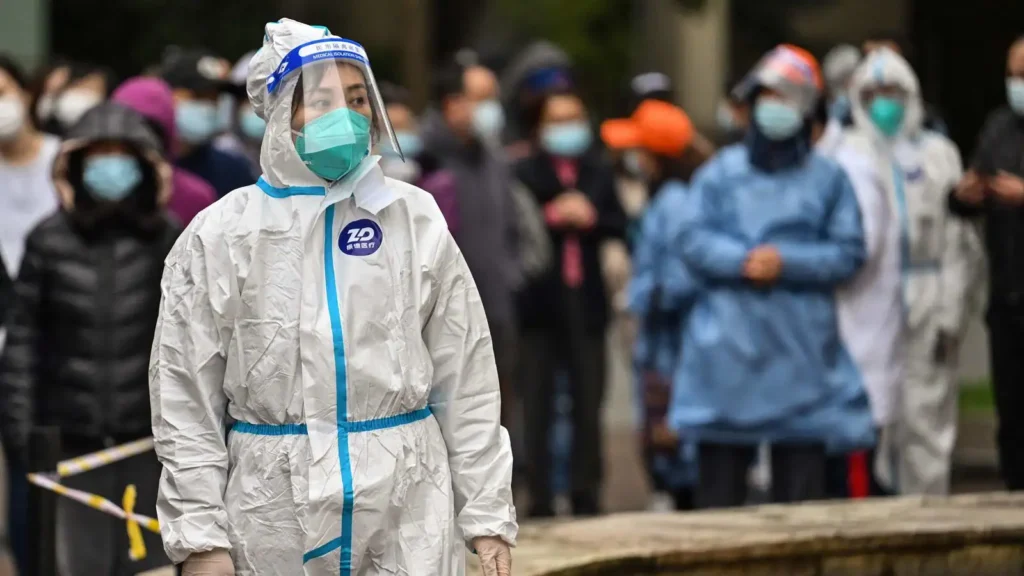The central government has urged the state governments to remain vigilant in light of the increasing number of Covid cases.


In a correspondence addressed to states and union territories, Sudhansh Pant, the Union Health Secretary, emphasized the significance of the continuous and cooperative efforts undertaken by the central and state governments. These endeavors have successfully maintained the trajectory of Covid-19 at sustainable and low levels.
The Centre has urged states and union territories to remain vigilant as there has been a rise in Covid-19 cases and the detection of the new JN.1 variant in the country. In a letter addressed to states and union territories, Union Health Secretary Sudhansh Pant emphasized the importance of consistent and collaborative efforts between the Centre and state governments in maintaining a sustainable low rate of Covid-19 cases. He also highlighted the need to continue the momentum in effectively addressing the challenges in public health, considering the circulation of the virus and other pathogens in Indian weather conditions.
Pant observed that there has been a slight rise in the number of Covid-19 cases in certain states such as Kerala, as of late.
On December 8, the first instance of the JN.1 sub-variant of Covid-19 was identified in Kerala, marking India’s initial case. Prior to this, a traveler from Tamil Nadu’s Tiruchirapalli district had tested positive for the JN.1 variant in Singapore.
In light of the approaching holiday season, Pant emphasized the importance of states implementing necessary public health measures and making appropriate arrangements to reduce the potential spread of the disease. The Union Ministry of Health and Family Welfare has shared detailed operational guidelines for a revised surveillance strategy for Covid-19, and states are strongly encouraged to ensure strict compliance with these guidelines. Additionally, states have been requested to closely monitor and report cases of Influenza-like Illness (ILI) and Severe Acute Respiratory Illness (SARI) on a district-wise basis in all healthcare facilities. This proactive approach aims to facilitate early detection of any upward trend in cases.
States were further advised to ensure sufficient testing in all districts in accordance with Covid-19 testing guidelines and maintain the recommended proportion of RT-PCR and antigen tests.
In his correspondence, Pant also emphasized the necessity of increasing the number of RT-PCR tests and sending positive samples for genome sequencing to the Indian SARS COV-2 Genomics Consortium (INSACOG) laboratories. This would facilitate the timely identification of any new variants, if present, within the country.
The states were instructed to promote community awareness and seek ongoing support from the public in managing Covid-19, which includes adhering to respiratory hygiene practices. Pant mentioned that the first case of JN.1 (BA.2.86.1.1) variant has been detected in India and provided detailed information about it in an annexure. The variant, JN.1 (BA.2.86.1.1), emerged in late 2023 and is a descendant of the BA.2.86 lineage (Pirola) of SARS COV2.
The BA.2.86 lineage, which was initially identified in August 2023, exhibits distinct phylogenetic characteristics compared to the circulating SARS-CoV-2 Omicron XBB lineages, such as EG.5.1 and HK.3. With over 30 mutations in the spike protein, BA.2.86 demonstrates a significant potential for evading the immune system.
The JN.1 variant has been reported in multiple countries including the USA, China, Singapore, and India. China has reported seven cases of this sub-variant. However, further genetic sequencing data is necessary to confirm its presence in other countries.
According to the annexure, it is currently unknown whether the JN.1 infection causes different symptoms compared to other variants. Generally, symptoms of Covid-19 tend to be similar across different variants.
Furthermore, there is no evidence suggesting increased severity from the JN.1 variant. At present, there is no indication that JN.1 poses a higher risk to public health when compared to other variants that are currently circulating, as stated in the annexure.
The existing treatment protocol for Covid-19 is expected to remain effective against JN.1 infection. Additionally, updated vaccines are anticipated to enhance protection against this variant, as mentioned in the annexure.
